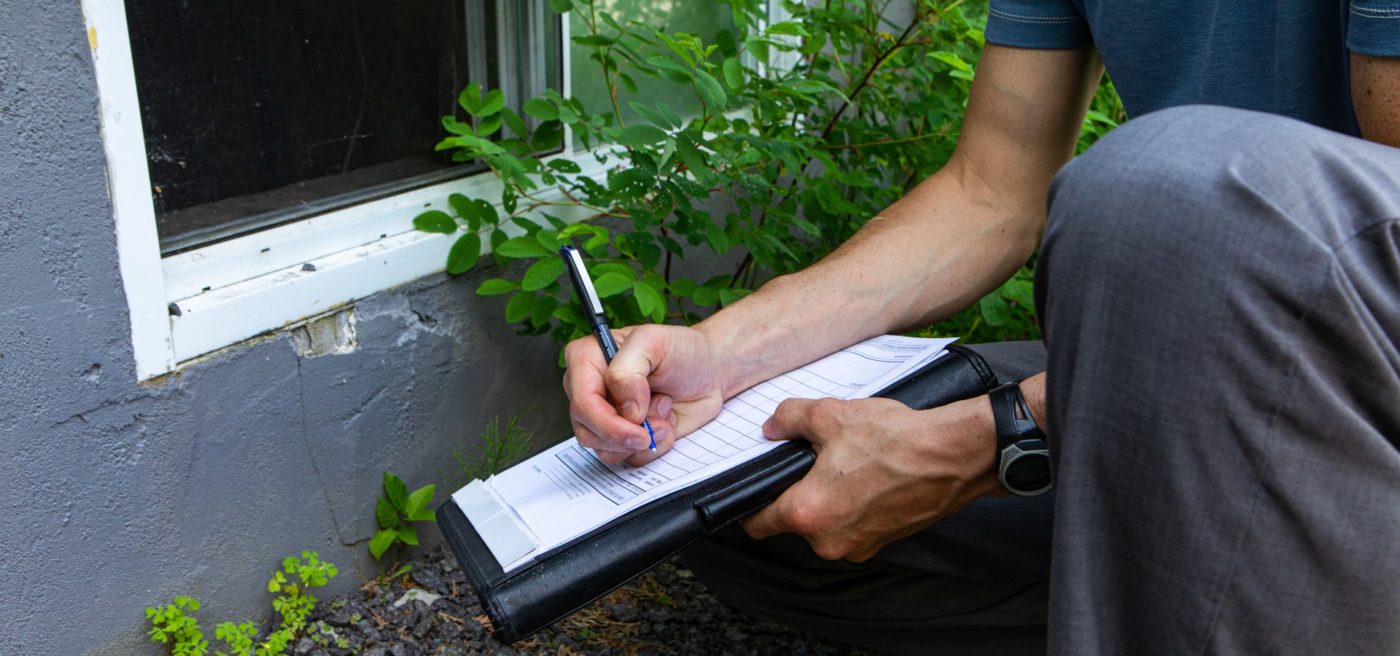Handling items contaminated with lead-based paint is hazardous and can be incredibly detrimental to the health of home dwellers. Renovators and other construction professionals are required to hold specific EPA certifications to safely complete work that disturbs lead-coated materials, which can be obtained through professional EPA certification training courses. And, to keep all of the vital information gained in these courses current and up-to-date, construction professionals can also take refresher courses for re-certification.
EPA Lead Certifications Explained
Homes built after 1978 will not contain any traces of lead-based paints or dust due to the introduction of lead-based legislation and paint bans past that year. However, older homes and dwellings can have much higher levels of this dangerous substance, so safe work practices must be implemented. Applying for and renewing EPA lead-safe certifications is easy with so many online and in-person professional training programs out there.
The professional training courses available to construction workers will provide knowledge of best work practices, safety protocols to keep the job site clean, and tips to minimize the negative health impacts of lead exposure. Supervisors and workers alike must acquire EPA certifications before completing any work in lead-contaminated areas. Credentials are good for five years before they must be renewed. These critical accreditations help your construction team avoid any long-term health effects after lead exposure or inhalation.
Why Do Workers Need Certifications in the First Place?
The professional training programs contractors can utilize to obtain EPA certifications help ensure that the best practices are used on-site to protect the construction team’s health and the home’s occupants. Lead poisoning is dangerous and often causes severe and prolonged health problems, particularly in children. Some examples of common lead poisoning symptoms include:
- Cognitive and developmental delays
- Memory loss
- Fertility issues
- Depression
- Fatigue
- Weight loss and loss of appetite
- Vomiting, constipation, and diarrhea
- High blood pressure
- Stroke
- Seizures
In addition, failure to comply with certification requirements and the EPA’s Lead Renovation, Repair, and Painting (RRP) Rule can result in hefty fines for contractors and homeowners. In some cases, violations can cost up to $37,500 per incident per day, or even more if the infraction is found to be willful. Those kinds of fines will put your company far over budget, and the penalties also often apply to the homeowner as well.
Acquiring the necessary certifications (and continued refresher certifications) for a lead-safe firm is crucial, but it’s important to note that EPA certifications are not applicable in all states. In some areas, you must apply to their lead-safe certification programs separately.
How Refreshing: An Overview of EPA Lead Renovator Refresher Courses
Of course, it’s an excellent first step to secure your initial certification when working in a location contaminated with lead paint and dust particles. But one run-through of this vital information isn’t enough to satisfy the demands of such a dangerous job. Workers and supervisors must also take refresher courses before their certifications expire to stay protected. Below, explore an overview of each EPA certification refresher course, where you can add updated information to your arsenal of essential lead-safe knowledge and practices.
1. Lead Renovator Supervisor and Worker Refresher Courses
Workers and supervisors can sign up for a certification renewal class every five years covering all current best practices for construction and renovations that disturb lead-contaminated materials and areas. Lead renovator refresher courses are designed to help keep construction professionals in compliance with the RRP Rule and avoid the costly fines that can come along with lapses in certifications. However, individuals who fail to complete this refresher course before their original certification expiration date will be required to re-do the initial EPA lead renovator course, so it’s best not to let your credentials lapse.
2. Lead Abatement Specialist Supervisor and Worker Refresher Courses
Lead abatement is the process of entirely removing materials impacted by lead-based paints. Encapsulation is a similar process that enables renovators to safely cover and seal off contaminated areas without actually removing the lead-coated items.
In the initial and refresher lead abatement courses, supervisors and workers will learn about the critical impacts of lead poisoning and be taught how to best remove or encapsulate lead-coated items without causing harm to the construction team or the dwelling’s occupants. This can include information about daily and final cleaning and waste disposal procedures, lead dust minimization techniques, and how to use the tools required to safely complete lead abatement. Other objectives of the abatement refresher include:
- Worker protections
- Proper safety procedures
- Clean-up protocols
- Waste disposal regulations
- Resident and community relations
- Local regulatory rules
- Different sampling techniques
- Legal and insurance aspects
It’s critical to stay up to date on lead abatement certifications from the EPA since lead inhalation, or exposure can cause many short and long-term adverse health effects. Individuals who wish to become a lead abatement supervisor must have at least one year of certified work experience as a lead abatement worker or two years of experience in a related field or area of work.

3. Lead Inspector Refresher Courses
A lead inspector should be available throughout lead-contaminated construction to ensure clearance standards are met, and that lead levels are safe prior to occupancy. An eight-hour refresher course provides updated industry information, state-of-the-art lead inspection methods, and proper inspector procedures. The practical, hands-on experience you gain in this refresher course can be quickly applied to your daily work activities. Lead inspector refresher courses focus on the following topics:
- Locations of lead contamination
- Uses of lead-based paint
- Lead health effects
- Regulatory reviews
- Roles and responsibilities
- Different paint, dust, and soil inspection methodologies
- Building construction
- Clearance standards and testing
- Lead sampling results interpretation
- Final inspection report formulation and implementation
Unlike other EPA certifications, no prior experience, training, or accreditation is required to pass this class and start participating in lead dust inspection activities.
4. Lead Risk Assessor Refresher Courses
The lead risk assessor on a job site is responsible for determining the existence, location, and severity of lead-contaminated materials or paint hazards. The refresher course for this certification offers the information necessary to investigate and report results properly, plus so much more. The primary purpose of the lead risk assessor training course is to teach the following:
- Identifying lead contamination sources
- Lead-based paint hazard evaluations
- Visual inspections of lead-based paint hazards
- Various sampling techniques
- Clean-up and clearance procedures
- Results and reporting interpretation
Lead risk assessment professionals must also pass an accredited lead inspection course, hold a college degree, have job experience, and obtain other relevant certifications before becoming a certified lead risk assessor.
5. Lead Dust Sampling Technician Refresher Courses
Individuals who want or need to conduct non-abatement lead dust clearance testing are required to acquire a lead dust sampling technician certification. The refreshers courses for this certification must be completed every five years so that workers remain updated on the right ways to determine whether lead dust remains after a renovation or painting takes place. In the lead dust sampling technician refresher course, information is offered on how to correctly:
- Conduct a visual inspection
- Collect lead dust samples
- Implement proper methodologies
- Complete reporting requirements
Lead dust sampling is critical in ensuring that the residence is safe and well-prepared for people to re-enter and reside. But remember, if EPA certification lapses and expires, an initial training course must be retaken to renew the accreditation.
Get Refreshed With Help From the Experts
The EPA requires all construction professionals to participate in refresher courses every five years to re-up on the various certifications available. Workers and supervisors alike have several options for getting their re-certification to work within lead-contaminated spaces safely.
Contact ZOTA Professional Training today to renew your EPA lead certifications. We offer our professional training courses online and in-person to fit perfectly into your busy schedule. Learn about workplace safety, best practices, and everything else you need to provide your clients with services they can trust to protect their health.


